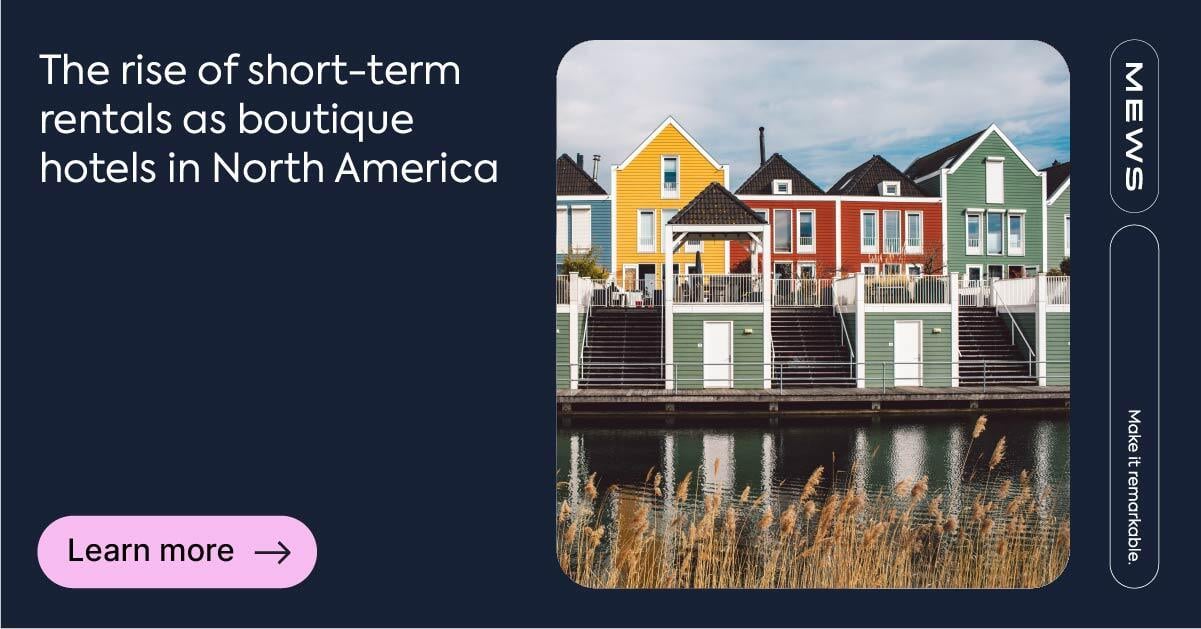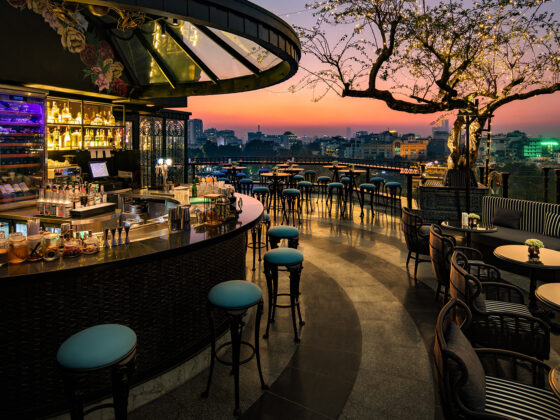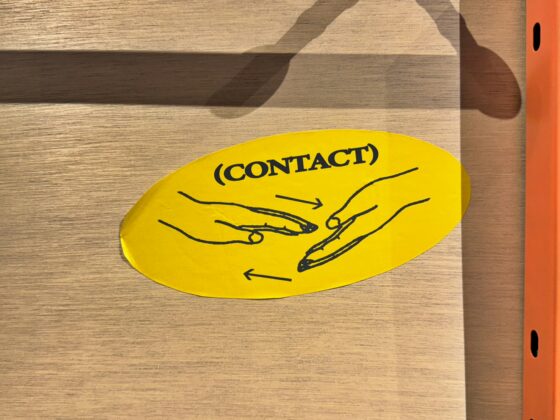
In recent years, the hospitality landscape in North America has undergone a significant transformation. The lines between traditional hotels and short-term rental (STR) accommodations have blurred, creating a dynamic and competitive market.
This shift has been driven by changing consumer preferences, technological advancements and the rise of platforms like Airbnb, which have made STRs a viable and attractive alternative to hotels. Travelers are increasingly seeking unique, personalized experiences that offer the comforts of home, leading to a surge in demand for STRs. As a result, STRs are now one of the fastest-growing segments in the boutique hotel market, reshaping the way people think about travel and accommodation.
The evolution of short-term rentals: from anti-hotel to boutique experience
Initially, STRs emerged as the “anti-hotel” option, offering unique, home-like experiences that traditional hotels couldn’t match. These properties provided a refreshing alternative to the standardized offerings of hotels, appealing to travelers looking for something different.
However, as the market evolved, many STR properties began to adopt features and services typically associated with boutique hotels. This transition has allowed them to present themselves as boutique properties, offering personalized and high-quality experiences while maintaining the charm and individuality that attracted guests in the first place.
Today, short-term rentals are not just about providing a place to stay; they are about creating memorable experiences that resonate with the modern traveler’s desire for authenticity and uniqueness.
Five factors driving short-term rental growth
Let’s look a little more closely at what’s propelling this change to help short-term rentals get a strong foothold in the boutique space.
- Price: Initially, STRs were seen as a more affordable option compared to hotels. However, the average daily rates (ADRs) for both have become more balanced, especially when considering additional fees associated with STRs.
- Guest experience: STRs often provide unique and personalized experiences that boutique hotels strive to offer. Conversely, some STRs are incorporating professional services typically associated with hotels, such as cleaning and concierge services.
- Location: The availability of STRs and hotels varies by location. In urban areas with strict regulations on STRs, hotels may dominate. In rural or remote areas, STRs often provide a more appealing option due to their unique local experiences.
- Accommodation size and length of stay: STRs are ideal for large groups and extended stays, offering entire homes for rent. Hotels, on the other hand, cater to shorter stays and provide amenities like room service and fitness facilities.
- Technology and convenience: The rise of online platforms like Airbnb, VRBO and Booking.com has made booking short-term rentals easier and more accessible. Additionally, the integration of smart home technology and automated management systems has streamlined operations, making it more convenient for both guests and property managers.
Five ways Mews seamlessly transforms short-term rentals
Not every property management system is well-suited to managing short-term rentals. Mews, on the other hand, is an ideal technology partner for this burgeoning accommodation segment.
- Sleek and integrated booking engine: Mews offers a user-friendly booking engine that integrates seamlessly with major platforms like Expedia, Booking.com and Airbnb. This centralized system means you can harness additional direct and OTA exposure to attract more guests and simplifies the booking process, increasing occupancy rates and providing a smooth start to the guest experience.
- Comprehensive management tools and automation: Mews streamlines operations with tools for reservations, guest communications and housekeeping. Automated check-in/out processes, invoicing and reporting reduce the need for on-site staff and minimize errors, providing 24/7 service availability and allowing property managers to focus on enhancing the guest experience.
- Effortless and timely communication: Throughout a guest’s stay, Mews facilitates seamless communication with messaging and SMS texting within the PMS. This ensures guests receive timely updates and support, enhancing their overall experience and making them feel well-cared for.
- Contactless and enhanced guest experience: Mews supports automated check-ins with door codes or mobile phone locks, catering to the demand for contactless experiences. Additionally, it offers personalized guest communication, loyalty programs and integrated payment solutions, creating a seamless and enjoyable experience for guests.
- Data-driven insights and scalability: Mews provides real-time data and analytics for informed decision-making on pricing, marketing and operations, helping maximize revenue and optimize occupancy rates. It also supports the scalability of operations, enabling easy addition of new properties and management of multiple locations from a single platform.
Embracing the future of short-term rentals
The growth of short-term rentals in North America’s boutique hotel market reflects modern travelers’ evolving preferences. By leveraging advanced technology like Mews, these properties can enhance their competitiveness and provide exceptional guest experiences. As the lines between hotels and STRs blur, the hospitality industry must adapt and embrace new opportunities.
Many short-term rentals now emulate the professional services and efficiencies of traditional hotels, but with a twist. They combine the unique, personalized experiences of STRs with the reliability and amenities of hotels. This hybrid approach allows STRs to stand out, offering the best of both worlds. By adopting Mews, short-term rentals can seamlessly integrate these hotel-like features while maintaining their distinct charm, ensuring they stay ahead in the evolving hospitality landscape.
Want to know more about how Mews can transform your property? Our Mews experts would love to talk about your business needs.









